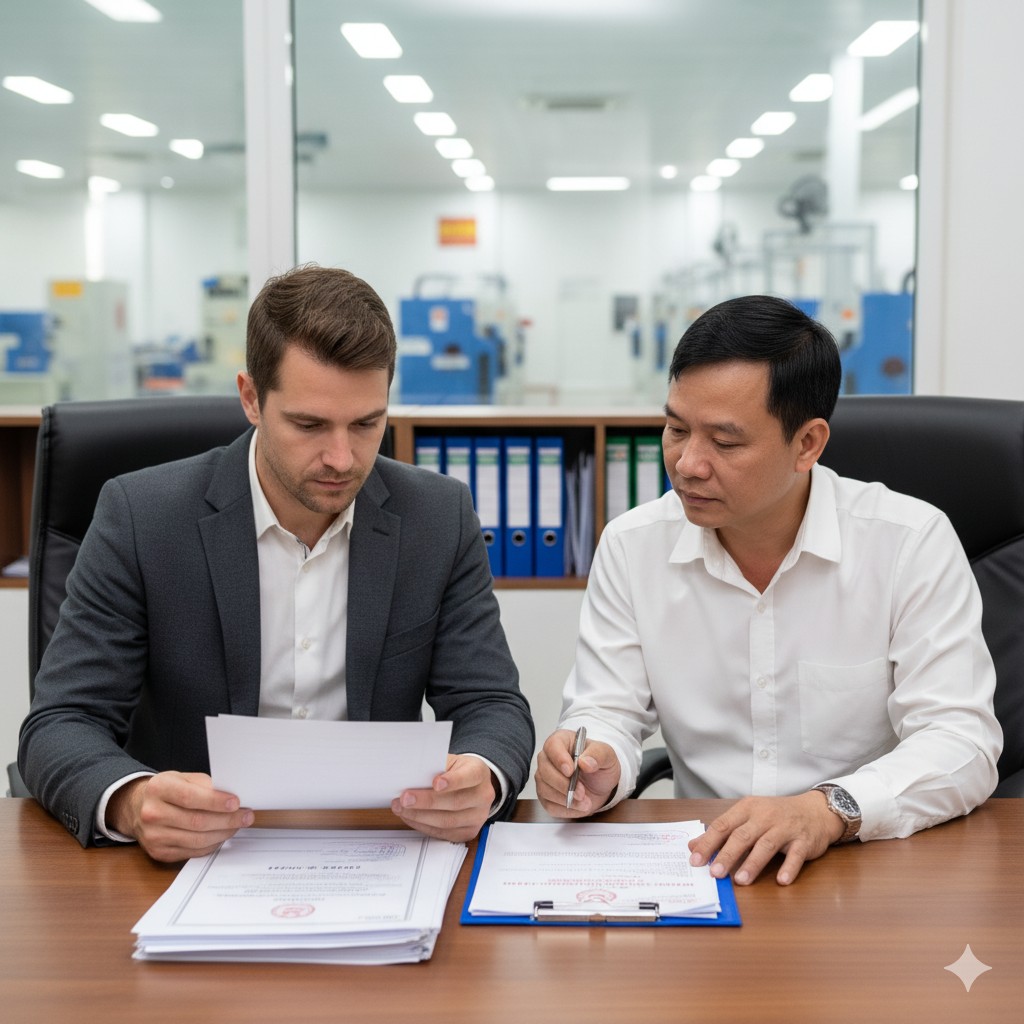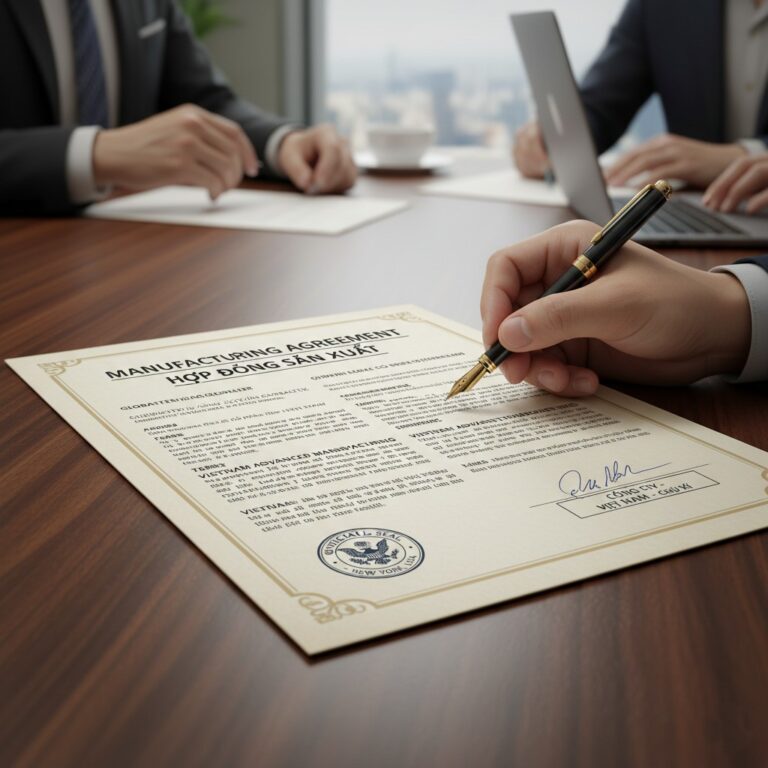You’ve found a promising supplier online. Their prices are competitive, and their product photos look great. But how do you know if they are a legitimate, capable manufacturer or just a clever middleman with a nice website?
The difference between a successful import and a costly failure often comes down to one crucial step: due diligence. Before you commit time and money to samples or a deposit, use this 10-point checklist to vet any potential Vietnamese supplier.
1. “Can you provide your Business Registration Certificate?”
This is the most basic first step. A legitimate company will have a registered business name, address, and tax number. You can use this to verify their legal status and how long they’ve been in operation.
2. “Are you a factory or a trading company?”
An honest supplier will answer this directly. While both have their advantages, you need to know who you’re dealing with. Ask for photos of their factory floor, production lines, and warehouse to support their claim.
3. “What is your main product focus?”
Beware of a supplier who claims to make everything from t-shirts to electronics. A true manufacturer has a specialization. Their expertise and best pricing will be within that specific niche.
4. “What is your annual production capacity?”
This helps you understand their scale. Can they handle your order volume, especially if you plan to grow? Ask for their monthly output and their current capacity utilization to ensure they won’t be overwhelmed by your order.
5. “What percentage of your products are exported?”
A high export percentage (e.g., over 70%) is a strong indicator that they are familiar with international quality standards, packaging requirements, and shipping procedures. Ask which countries they export to the most.
6. “Do you hold any quality certifications (ISO, FSC, etc.)?”
Certifications like ISO 9001 (for quality management) or industry-specific ones like FSC (for wood products) or OEKO-TEX (for textiles) are a powerful sign of a professional and responsible operation. Always ask for copies of the certificates and verify their validity.
7. “What is your standard Minimum Order Quantity (MOQ)?”
This is a practical question that determines if their business model fits yours. If their MOQ is 5,000 units and you only need 500, they may not be the right fit. Sometimes, this is negotiable, but it’s a key early question.
8. “Can you provide references from clients in the US or EU?”
A confident, experienced exporter will have no problem connecting you with one or two of their existing clients. Speaking to a reference is one of the best ways to get an honest assessment of their quality, communication, and reliability.
9. “What are your standard payment terms?”
Understanding their required payment structure (e.g., 30% deposit, 70% upon completion) is critical for your cash flow and risk management. A refusal to be flexible or a demand for a very high upfront deposit (e.g., >50%) can be a red flag.
10. “What is your process for handling defects or quality issues?”
This question reveals their commitment to quality and customer service. A good supplier will have a clear process for addressing issues, whether it’s reworking defective items, offering a credit, or replacing them in a future order.
Conducting this level of deep due diligence from overseas can be challenging. This is where an on-site factory audit by a local partner provides invaluable clarity and peace of mind.

Diligence is Your Best Insurance
Asking these ten questions will help you filter out unsuitable suppliers and identify the most promising partners. Taking the time to vet properly at the beginning is the single best investment you can make in the success of your sourcing journey.
Need a comprehensive audit for a potential supplier? EQSource provides detailed on-site factory audits and background verification reports. Contact us to get the full picture before you commit.





